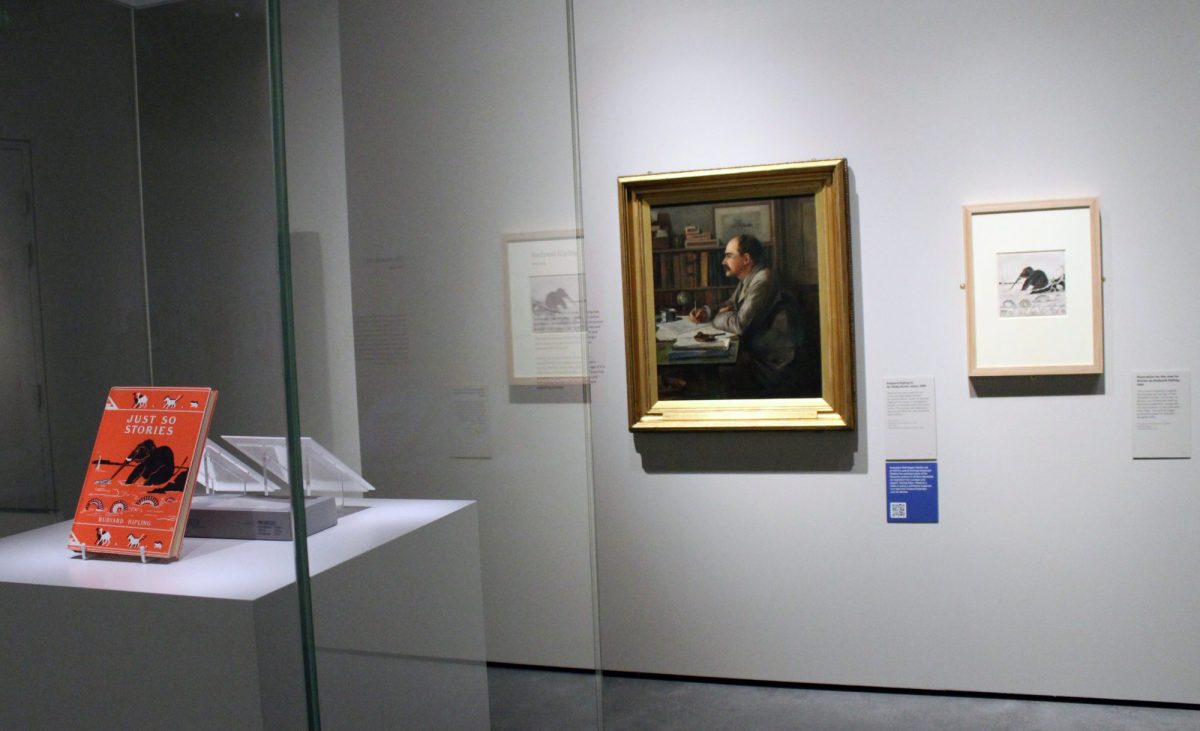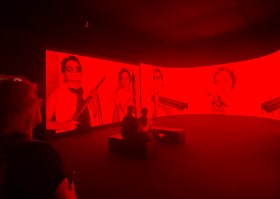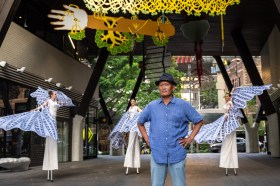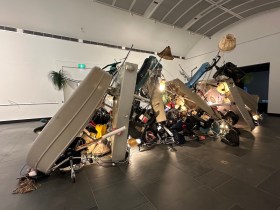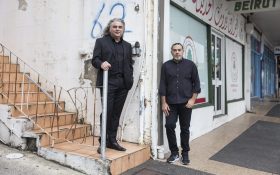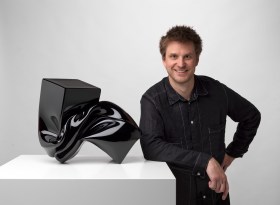This school holidays, families seeking an outing may like to consider Writers Revealed at Home of The Arts (HOTA) on the Gold Coast. It’s an exhibition that offers a novel insight into the creative practices of authors who’ve shaped the English-speaking world since the Reformation.
In the inclement weather across South East Queensland, their pre-digital parents may favour curling up with a good book. Embracing the unique architecture of gallery one, this immersive exhibition unfurls in five chapters that are accessible through multiple doors connected by an atrium. This allows viewers to navigate the exhibition – much like a book – in their order of choosing.
The most reluctant of companions is likely to find something scintillating among the assortment of artefacts that are drawn from the collections of the British Library and the National Portrait Gallery in London.
A partner uninterested in reading, for instance, may be moved by a map penned by The Lord of the Rings author J R R Tolkien for his nine-year-old grandson in 1952. It’s reminiscent of many that charted the movements of characters in the movie trilogy. This is complemented by a gelatin silver print of the author taken by the late Antony Armstrong-Jones, 1st Earl of Snowdon and the former husband of Princess Margaret.
Or, they could be captivated by an unfinished watercolour of Jane Austen. The sketch made by her sister Cassandra in 1810 is independently enclosed within a light-controlled chamber. It’s accompanied by a letter she wrote to her nephew in 1816 on wove paper. This phraseology appears in the dialogue of characters in her novels, which have been adapted into films ad nauseam.
The youngest viewers, both in age and heart, may be buoyed by the photograph and correspondence associated with A A Milne. The former, depicting the author and his son Christopher, was taken by Howard Coster in 1926. This is juxtaposed with a reply to an invitation by Winnie the Pooh illustrator E H Shepard that includes a sketch of the beloved bear.
A particularly powerful aspect of this exhibition is its exposition of editing, a process that has been rendered invisible by digital technology. This is witnessed through a play script of Dracula, containing pasted typed components overwritten in ink by Bram Stoker in 1897.
There’s also a draft written on laid paper by his contemporary John Keats that’s represented in a Perspex box. Unfortunately, as is the case for a number of celebrated exemplars, facsimiles of their work have been supplied. This enables the uninitiated viewers to become acquainted with each period of English literature. However, it may leave some aficionados disappointed.
Also featured are the original drafts and sketches poet Alexander Pope used to translate Homer’s Iliad. His repurposing of paper from letters he received, one complete with its seal intact, may be of particular interest.
This exhibition could be considered a testament to a type of learning lost to technological development.
Read: Exhibition review: Michelle Van Eimeren: Imbue, CBD Gallery
One of the most pressing concepts inadvertently conveyed is how predominantly English-speaking cultures are underpinned by the principles expressed through prose. Also elaborated upon is how authors are influenced by their circumstances and how they have, in turn, shaped the societies in which they sojourned.
Writers Revealed: Treasures from the British Library and the National Portrait Gallery, London will be exhibited at HOTA until 3 August 2025.

